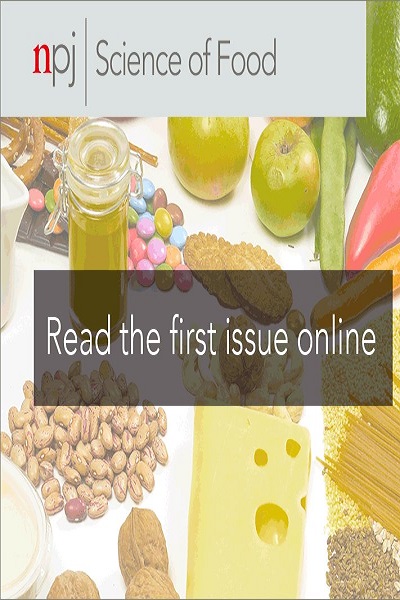Preventive effect of Tyr-Pro, a blood-brain barrier transportable dipeptide, on memory impairment in SAMP8 mice
IF 6.3
1区 农林科学
Q1 FOOD SCIENCE & TECHNOLOGY
引用次数: 0
Abstract
In a series of studies on blood-brain barrier transportable peptides, a soybean dipeptide, Tyr-Pro, penetrated the mouse brain parenchyma after oral intake and improved short and long memory impairment in acute Alzheimer’s model mice. Here, we aimed to clarify the anti-dementia effects of this peptide administered to SAMP8 mice prior to dementia onset. At the end of the 25-week protocol in 16-week-old SAMP8 mice, Tyr-Pro (10 mg/kg/day) significantly improved the reduced spatial learning ability compared with that in the control and amino acid (Tyr + Pro) groups as indicated by the results of Morris water maze tests conducted for five consecutive days. The hippocampus and cortex regions of SAMP8 harvested after the test showed lower amyloid ß (Aß) accumulation in the Tyr-Pro group than those in the control and amino acid groups. Consistent with the lower level of Aß, decreased expression of ß-secretase (BACE1) and markedly increased expression (4-times higher) of insulin degrading enzyme (IDE) were obtained compared to those in the control group. Collectively, we demonstrated that long-term daily intake of the dipeptide Tyr-Pro in SAMP8 mice may be sufficient for maintaining cognitive ability by preventing excess Aß accumulation through downregulated BACE1 and particularly upregulated IDE.

血脑屏障可转运二肽Tyr-Pro对SAMP8小鼠记忆损伤的预防作用
在一系列关于血脑屏障可转运肽的研究中,一种大豆二肽,Tyr-Pro,在口服后穿透小鼠脑实质性,改善急性阿尔茨海默病模型小鼠的短期和长期记忆障碍。在这里,我们的目的是澄清在痴呆发病前给SAMP8小鼠这种肽的抗痴呆作用。在16周龄SAMP8小鼠的25周实验结束时,与对照组和氨基酸组(Tyr + Pro)相比,Tyr-Pro (10 mg/kg/天)显著改善了下降的空间学习能力,这是连续5天Morris水迷宫测试的结果。测试后收获的SAMP8海马和皮质区域显示,与对照组和氨基酸组相比,tyr1 - pro组的淀粉样蛋白(asβ)积累较低。与asas水平降低一致,ß-分泌酶(BACE1)表达较对照组降低,胰岛素降解酶(IDE)表达较对照组显著升高(4倍)。总的来说,我们证明了SAMP8小鼠长期每日摄入二肽tir - pro可能足以通过下调BACE1,特别是上调IDE来防止过量的asas积累,从而维持认知能力。
本文章由计算机程序翻译,如有差异,请以英文原文为准。
求助全文
约1分钟内获得全文
求助全文
来源期刊

NPJ Science of Food
FOOD SCIENCE & TECHNOLOGY-
CiteScore
7.50
自引率
1.60%
发文量
53
期刊介绍:
npj Science of Food is an online-only and open access journal publishes high-quality, high-impact papers related to food safety, security, integrated production, processing and packaging, the changes and interactions of food components, and the influence on health and wellness properties of food. The journal will support fundamental studies that advance the science of food beyond the classic focus on processing, thereby addressing basic inquiries around food from the public and industry. It will also support research that might result in innovation of technologies and products that are public-friendly while promoting the United Nations sustainable development goals.
 求助内容:
求助内容: 应助结果提醒方式:
应助结果提醒方式:


